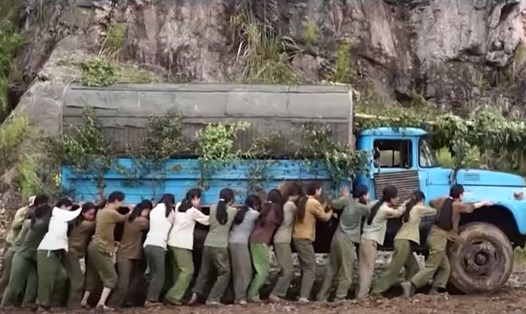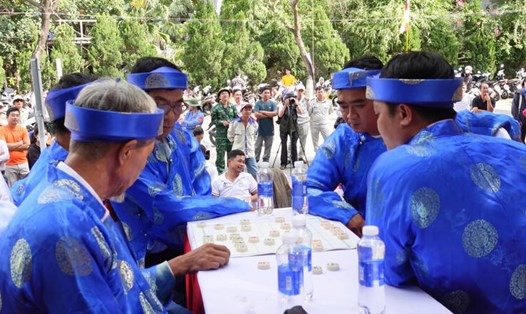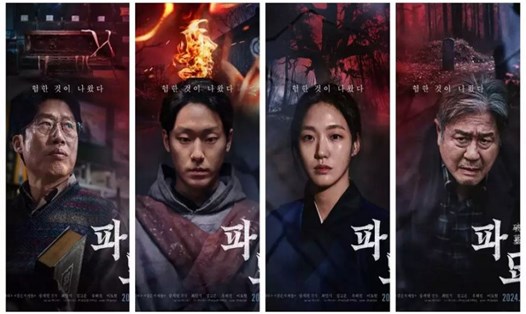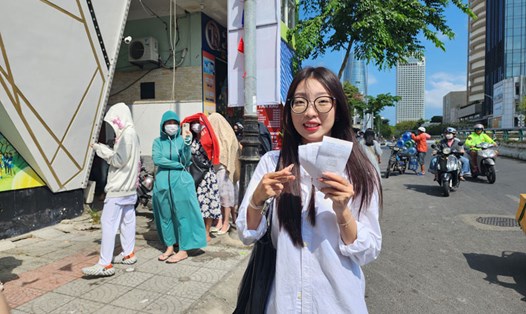Making historical films is difficult in many ways.
Regarding historical themes, Vietnamese revolutionary cinema had brilliant years, with many impressive works such as: “Sao thang am”, “Ha Noi mua dong phan 46”, “Vi tuyen 17 ngay va dem”… or contemporary cinema also has many famous works such as: “Long Thanh cam gia ca”, “Nhung nguoi viet huyen thoai”, “Mui co chan” and recently “Dao, pho va piano”…
Within the framework of the 2024 Hanoi International Film Festival, at the workshop "Developing the production of films exploiting historical themes and adapted from literary works", film producer Nguyen Trinh Hoan also shared the common difficulties that Vietnamese filmmakers are facing when wanting to exploit historical themes.
Mr. Nguyen Trinh Hoan said that this type of film is very expensive because it requires setting up the scene, costumes, and props according to history. Historical films are not as attractive as commercial films, making it difficult to attract investment and also difficult to recover capital. Not to mention, the increase in value added tax (VAT) for cultural and sports activities from 5% to 10% is also a barrier, causing costs to increase.
Meanwhile, writer Nguyen Quang Thieu - Chairman of the Vietnam Writers Association - assessed that historical films are difficult to make because the audience does not accept creativity, considering historical films as documentaries. The writer said: "With historical works in Vietnam for a long time, there has been a difficulty that sometimes the author respects history too much and has a vague fear of historical characters and themes, which has hindered creativity. We must have the right to create a space to create that character or historical period."
Experts point out that when filmmakers do not deify historical figures and find ways to connect them to contemporary life, they will find new angles of exploitation. In addition, filmmakers also recommend increasing support from the State and reviewing tax policies and investment resources for cultural products.
The direction for historical films
From a perspective of Chinese cinema, Mr. Qian Zhongyuan, Production Director of As One Production (China), producer of many successful historical films, shares his experience in exploiting historical themes in cinema.
“In China, historical events or literary works are deeply imprinted in people’s memories. We can mention famous works such as “Water Margin”, “Romance of the Three Kingdoms”… But because the audience is knowledgeable and familiar, that is both an advantage and a pressure for filmmakers to be creative,” said Mr. Qian Zhongyuan.
To encourage historical filmmaking, China has many support policies such as filmmakers are always supported by researchers and experts in the industry throughout the filmmaking process; financial support; local authorities support and create conditions for filming at desired locations...
According to director Charlie Nguyen, historical films are attractive, bring cultural beauty, and connect generations. “To make a historical film, Vietnamese filmmakers have many obstacles and fears. Historical films can sometimes be like a documentary and that sometimes “ties the hands and feet” of filmmakers. But if the film is historical, it will be dry and emotionless. There are real facts recorded in history books, but the film will add a spiritual and psychological truth, depicting the inner journey of a character. That is the role and mission of a film based on real historical events. Filmmakers need to insert meaning and connect emotions with contemporary audiences to look back on the historical journey,” the director said.
There needs to be a balance between respecting historical truth and creative freedom to develop historical films based on the nation's rich historical treasure. Films recreating history not only contribute to preserving and promoting national cultural values but also bring Vietnamese cinema closer to the goal of becoming the country's spearhead cultural industry.











